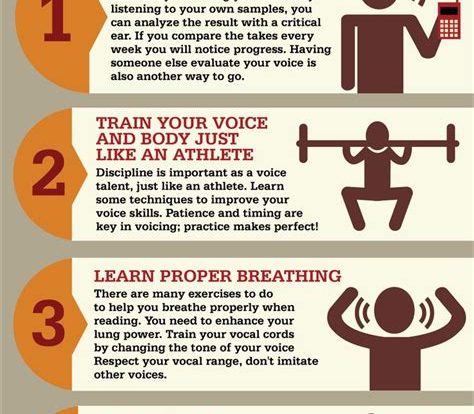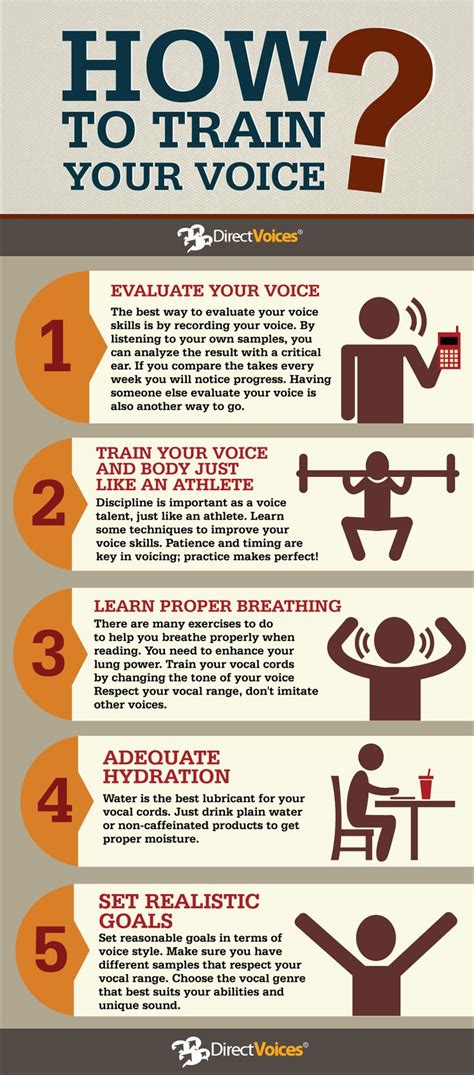

Discover effective techniques on how to train your voice, from breathing exercises to vocal warm-ups. Improve your singing or speaking skills today!
Are you tired of people telling you to speak up or repeat yourself? Do you struggle with delivering presentations or speeches confidently? If so, then it may be time to train your voice. Developing a strong and clear speaking voice is essential not only in professional settings but also in everyday communication. Whether you’re looking to improve your public speaking skills, boost your self-confidence, or simply want to sound more authoritative, there are several effective techniques you can use to train your voice. Here are some tips to help you get started:
Daftar Isi
How to Train Your Voice
Introduction
As a singer or public speaker, having a well-trained voice is essential. It can be the difference between a performance that leaves an audience in awe and one that falls flat. However, training your voice takes time and effort. In this article, we’ll provide some tips on how to train your voice effectively.
Warm-Up Exercises
Before starting any vocal exercises, it’s important to warm up your voice. This can be achieved through breathing exercises, humming, and lip trills. These exercises help to loosen up your vocal cords and prepare them for more strenuous activities.
Breathing Techniques
Breathing is an essential part of singing and speaking. Proper breathing techniques can help you project your voice and sustain longer notes. To improve your breathing, try taking deep breaths from your diaphragm rather than shallow breaths from your chest.
Vocal Exercises
Vocal exercises are designed to strengthen your vocal cords and improve your range. One of the most popular exercises is the lip roll. To perform this exercise, simply blow air through your lips as if you were making a motorboat sound. Another useful exercise is the sirens, which involves sliding your voice up and down the scale.
Posture
Proper posture is crucial when it comes to singing and speaking. Good posture helps to open up your airways and allows you to breathe more deeply. To achieve good posture, stand up straight with your shoulders back and your feet shoulder-width apart.
Pitch Control
Pitch control is a crucial aspect of singing. To improve your pitch, try practicing with a piano or keyboard. Start by playing a note and then try to match it with your voice. Over time, you’ll be able to improve your pitch and hit the right notes more accurately.
Articulation
Articulation refers to the clarity of your speech. To improve your articulation, try practicing tongue twisters or reading out loud. These exercises can help you to enunciate your words more clearly and avoid mumbling.
Hydration
Staying hydrated is important for maintaining a healthy voice. Drinking plenty of water can help to keep your vocal cords lubricated and prevent them from becoming dry and irritated. Avoid drinking alcohol or caffeine before a performance, as these can dehydrate your body and harm your voice.
Rest
Rest is important when it comes to training your voice. Overusing your voice can lead to strain and damage to your vocal cords. Try to take breaks between performances or practice sessions to allow your voice to rest and recover.
Consistency
Consistency is key when it comes to training your voice. Regular practice can help to strengthen your vocal cords and improve your overall technique. Try to set aside time each day to practice your vocal exercises and work on your singing or speaking skills.
Conclusion
Training your voice takes time and effort, but with the right techniques and consistency, anyone can improve their vocal abilities. By incorporating warm-up exercises, breathing techniques, vocal exercises, good posture, pitch control, articulation, hydration, rest, and consistency into your routine, you can achieve a well-trained and powerful voice.If you want to improve your voice, there are many different techniques and exercises you can use to train your vocal cords. One of the most important aspects of training your voice is learning proper breathing technique. Deep breathing exercises can help you develop better lung capacity and diaphragm strength, which in turn can help you speak with more power and clarity. To avoid damaging your vocal cords, it’s also important to engage in vocal warm-ups before any performance. Simple exercises like humming, lip trills, and tongue twisters can help you prepare your voice for speaking or singing.Another crucial aspect of voice training is articulation. Proper enunciation is essential if you want to speak clearly and eloquently. There are many different exercises you can do to improve your articulation, such as practicing vowel sounds or reciting tongue twisters. Adjusting your pitch can also have a significant impact on the tone and style of your voice. Experimenting with different pitch levels can help you discover the range and capabilities of your voice and allow you to develop a wider range of expressions.Voice projection is another key component of effective public speaking and performance. Exercises like speaking with emphasis and practicing projection techniques can help you achieve a more powerful and confident voice. Variety is also important when it comes to your voice. Monotony can be boring and unengaging, while varied speech patterns can keep your audience attentive and engaged. Practicing modulation exercises can help you add variety to your speech.Singing is an excellent way to train your voice, as it requires you to use proper breathing and voice control techniques. Singing also helps to engage your diaphragm, boost your vocal range, and improve your overall vocal performance. Tongue twisters are an essential part of any voice training program as well. They help to improve your diction, articulation, and increase the speed with which you can speak.Finally, it’s important to remember that your voice is a precious instrument that you need to take care of. Regularly practicing voice rest can help you prevent damage to your vocal cords and maintain optimal vocal health. Consistent practice is also key to successful voice training. Like any other skill, you need to exercise your voice regularly to develop your abilities. Create a regular practice schedule and stick to it to see significant improvements in your voice. By engaging in these techniques, you can train your voice to become stronger, more expressive, and more effective in any situation.
As a journalist, having a strong and clear voice is essential when it comes to delivering news and information to your audience. However, not everyone is born with a naturally powerful voice. The good news is that with proper training, anyone can improve their vocal strength and clarity.
The Pros of Voice Training
- Improved Clarity: Voice training helps you to enunciate your words clearly, which is crucial when it comes to delivering news and information to your audience.
- Increased Vocal Strength: With regular practice, voice training can help you develop a stronger, more powerful voice that will help you to stand out in a crowded media landscape.
- Better Breath Control: Voice training involves exercises that help you to control your breath, which is key to delivering long-form pieces without running out of air.
- Confidence Boost: Voice training can help you feel more confident in your ability to deliver news and information to your audience, which can translate into better performance on the job.
The Cons of Voice Training
- Time-Consuming: Voice training requires commitment and time, as it involves regular practice and repetition of exercises.
- Expensive: Depending on the method you choose, voice training can be costly, especially if you opt for one-on-one sessions with a professional voice coach.
- Not Effective for Everyone: While voice training can have significant benefits for most people, some individuals may not see a noticeable improvement in their vocal capabilities, despite their efforts.
- Potential Health Risks: Some vocal exercises can be strenuous and put undue strain on the vocal cords, which can lead to injury or damage over time. It’s important to work with a qualified voice coach to avoid these risks.
In conclusion, voice training can be an excellent investment for journalists looking to improve their vocal abilities. However, it’s important to carefully consider the potential pros and cons before committing to a training program.
As a journalist, having a clear and strong voice is crucial for delivering news and information effectively. However, not everyone is blessed with a naturally powerful voice. The good news is that you can train your voice to sound stronger and more confident with practice and technique. Here are some tips on how to train your voice without a title.
The first step in training your voice is to focus on your breathing. Proper breathing techniques are key to developing a stronger and more powerful voice. Make sure to take deep breaths from your diaphragm rather than shallow breaths from your chest. This will help you project your voice and speak with more clarity and precision. You can practice breathing exercises like yoga or meditation to help improve your breathing technique.
Another important aspect of voice training is practicing vocal warm-ups. Just like athletes warm up their bodies before exercising, vocal warm-ups help prepare your voice for speaking. Some simple vocal warm-up exercises include humming, lip trills, and tongue twisters. These exercises help loosen up your vocal cords and improve your control and range.
Lastly, it’s important to practice speaking regularly to train your voice. Whether it’s reading aloud, singing, or speaking in public, find opportunities to use your voice and practice your technique. Recording yourself speaking can also be a helpful tool in identifying areas for improvement. Remember, the more you practice, the better you will become.
In conclusion, training your voice can seem like a daunting task, but with consistent practice and technique, anyone can develop a stronger and more confident voice. Remember to focus on your breathing, practice vocal warm-ups, and speak regularly to develop your voice to its full potential. With time and dedication, you’ll be amazed at how much your voice can improve.
Video how to train your voice
As a journalist, it is important to have a strong and clear voice. However, many people struggle with finding the best way to train their voice. Here are some common questions that people ask about voice training:
-
What exercises can I do to improve my vocal range?
- Lip trills or blubbers
- Humming
- Siren exercises
- Tongue twisters
- Vocal warm-ups
-
How can I improve my vocal clarity?
- Practice enunciating words clearly
- Speak slowly and deliberately
- Avoid mumbling or slurring words together
- Record yourself speaking and listen back for areas of improvement
-
What can I do to reduce vocal strain?
- Stay hydrated by drinking plenty of water
- Avoid smoking or exposure to secondhand smoke
- Limit caffeine and alcohol intake
- Take breaks when speaking or singing for extended periods of time
- Avoid shouting or speaking loudly for long periods of time
-
Are there any specific foods that can help improve my voice?
- Warm liquids like tea with honey
- Foods rich in vitamin C like citrus fruits and dark leafy greens
- Protein-rich foods like chicken and fish
- Non-dairy sources of calcium like almonds and leafy greens
There are several exercises that can help improve your vocal range:
To improve vocal clarity, try these exercises:
To reduce vocal strain, follow these tips:
Yes, there are certain foods that can help improve your voice:






